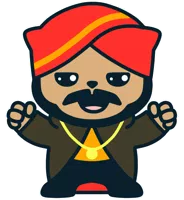Orange site: https://news.ycombinator.com/item?id=32425308

ntil recently, Tanuja Gupta was a senior manager at Google News. She was involved in various forms of activism at the company, and, in April, she invited Thenmozhi Soundararajan, the founder of Equality Labs, a nonprofit, to speak about the subject of caste discrimination. (India's caste system, which has existed in some form for centuries, separates Hindus into broadly hierarchical groups that often correspond to historical religious practice and familial professions. Those at the bottom of the system are called Dalits---formerly known as "untouchables"---and still face extreme discrimination in India.)
Numerous employees within the company expressed the view that any talk on caste discrimination was offensive to them as Hindus, and made them feel unsafe. The talk was eventually cancelled, and Gupta, who had been at Google for more than ten years, resigned amid an investigation into her own behavior. (A spokesperson for Google said that it has "a very clear, publicly shared policy against retaliation and discrimination in our workplace.")
I recently spoke with Gupta. Her lawyer, Cara Greene, joined the conversation, which we agreed would stay on the record. During the interview, which has been edited for length and clarity, we discussed how Silicon Valley deals with issues of caste discrimination, why Google employees felt "threatened" by the talk that Gupta had scheduled, and the circumstances behind her departure from the company.
Why did you want to join Google, and what did you feel about the place when you did?
tanuja gupta: I started working at Google in 2011. I had been working as a program manager in engineering and software for about a decade, but Google was top of the top. Of course you want a career at a great company. That was a product that I used day in and day out. It was a great opportunity.
When did you decide that you wanted to get involved with activism inside Google?
t.g.: Probably with the Google walkout in 2018. It was the height of the MeToo movement. The Kavanaugh confirmation was happening. The news about Andy Rubin had broken---the ninety-million-dollar payout that he received despite allegations of sexual misconduct. And so I think there was a little bit of a breaking point within the company, and in myself, the experiences that I'd had in tech. That's when it started.
As we've all grown during the past couple of years, diversity, equity, and inclusion [D.E.I.] has become more and more recognized as not just a moral nicety but actually as a business imperative, that companies have a competency around these matters, especially in products. For the past three years, I was working on Google News products. To be able to cover news topics about matters of race, gender equity, caste, things like that, you actually have to be able to understand matters of diversity and inclusion. And so it went from being a separate, side thing to integral to being good at your core job.
What got you interested in the subject of caste discrimination?
t.g.: There was my own obvious background. My parents immigrated from India in the early nineteen-eighties. I was certainly familiar with the topic. In September, 2021, two employees approached me. I hosted D.E.I. office hours every week where people could come in and talk about these topics, confidentially, and multiple Google employees came into my office and reported that they had faced discrimination when trying to talk about matters of caste in the workplace. There was already a public condemnation of caste discrimination at Google from the Alphabet workers' union. They had put out a press statement when the Cisco case broke. There were reports from at least twenty Google employees as well. [In June, 2020, California sued Cisco and two of its managers for engaging in caste discrimination. Afterward, Equality Labs received complaints from more than two hundred and fifty tech workers, including twenty Google employees.]
What made it really relevant to Google News was that, in 2022, there was a huge election in India where matters of caste equity were integral. Given the news-product footprint in India, caste is absolutely something we need to talk about, and we need to make sure that our products are thinking about folks from different caste backgrounds.
You're talking about the election earlier this year, in Uttar Pradesh, which is the most populous state in India, with more than two hundred million people, where a very right-wing politician, aligned with the ruling Bharatiya Janata Party, was reëlected as chief minister. [The B.J.P, led by India's Prime Minister, Narendra Modi, is known for its defenses of Hindu identity and religious chauvinism; its base of support has typically come from privileged-caste Hindus, although under Modi the Party has made inroads among voters from a variety of castes.] Are you saying that to understand these issues of caste was important for your work, and not just for the inner harmony of your workplace?
t.g.: That's right. It was a perfect storm of all these things---colleagues coming to me as well as our products being affected by it.
And were these colleagues coming to you in India or in the United States or both?
t.g.: Both.
Were these people who were experiencing discrimination firsthand, or was it more people who wanted to talk about this issue and why it's important?
t.g.: The first conversations I had were with people who felt that they were being discriminated against for even raising this topic. I think that's a form of discrimination in and of itself---where you can talk about some matters related to D.E.I. but not others. Then you had some other folks who faced it directly because of being caste oppressed.
When you say that people felt that they could not bring up caste discrimination, was this in the context of stories about what was happening in Uttar Pradesh, or things within the workplace, or both?
t.g.: Within the workplace.









Jump in the discussion.
No email address required.
Who was the discrimination coming from, and how did it manifest?
t.g.: I can share what I've seen and what's been shared with me. The first thing is denial. Saying this doesn't even exist. That is a form of discrimination. There were messages on e-mail threads that talked about how this isn't a problem here. If you replace the denial of caste discrimination with the denial of the Holocaust or something like that, it instantly clicks where other people start to realize, "Oh, something's wrong if people are denying this." The second thing---and I think the Cisco case is probably the most publicly known example---is that, within a team, when you've got people who are caste privileged and caste oppressed, the people who are caste oppressed start to be given inferior assignments, get treated differently, left out of meetings, which are certainly things that I heard from Google employees within the company. [The Google spokesperson said that caste discrimination has "no place in our workplace and it's prohibited in our policies."]
Another thing is these coded conversations. If you're not attuned to what the issue is, you won't even realize what's happening. Asking things like "What's your last name? I'm not familiar with it." Then, when the manager hears that last name, they're, like, "Oh, so you're from this caste---no wonder you have these leadership skills." Things like that. And somebody else in the room is, like, "What the heck?" It's those different types of experiences that I've seen or that have been shared with me that show that caste discrimination is happening in the workplace.
Are you saying that in the United States this discrimination is coming from other Indian Americans? This is not to say that white people or Latinx people or Black people or whoever else can't perpetrate caste discrimination. But I think a lot of people who aren't aware of the caste system or do not recognize someone's name or what that might suggest about their caste would say, "How could I discriminate about caste? I don't even know anything about caste."
t.g.: I don't fault people for not knowing the intricacies of caste discrimination. I fault people for not wanting to learn about it. Willfully not wanting to learn more about certain topics when you hear that people are being discriminated against, choosing not to do anything about it, that is a problem. And that's what was happening. People can absolutely discriminate based on caste by essentially denying it and not wanting to learn about it.
In other words, there is first-order discrimination by Indian Americans toward people from underprivileged castes. And then when this gets kicked up the chain of command or gets commented upon, people of varying backgrounds practice their own form of discrimination by not looking into it or not wanting to hear about it.
t.g.: That's exactly right.
So, you are hearing these stories. What happens next?
t.g.: We asked a speaker to come talk to our news team about matters of caste and discrimination, and specifically caste representation in the newsroom. Two days before the talk, which is part of a larger D.E.I. programming series that I ran for the team, a number of e-mails got sent to my V.P., to the head of H.R., to our chief diversity officer, to our C.E.O. directly, claiming that the talk was creating a hostile workplace, that people felt unsafe, that the speaker was not qualified to speak on the topic, and several other allegations. The talk got postponed. That was the term that was used.
Who was sending these e-mails?
t.g.: They were all internal Google employees. That's about as much as I can say. Google essentially decides to turn down the temperature by postponing the talk and conduct further due diligence on this speaker. Bear in mind that, just five months earlier, this speaker had spoken at Cloud Next, which is a huge event for Google Cloud.
Then nothing happened for two weeks. There was no follow-up on the due diligence, or what made the speaker objectionable in the first place. I told Google that they'd been given some misinformation, and explained why it wasn't true, and got nothing. At that point, Dalit History Month, which is in April, was about to end.
Do you want to say what Dalit means?
t.g.: Dalit is a term that means "broken," or "untouchable." It refers to folks at the bottom or outside of the caste system who have been relegated to perform the dirtiest jobs because they are considered spiritually polluted. It comes from a millennia-old system that has religious roots. There has been a cultural and societal impact on millions of South Asians in America, and across the globe, who have faced tremendous setbacks, particularly gender-based violence, but also when it comes to owning land or homes, or finding economic and educational opportunities.
The reason it was important to do the event in April is that the speaker is the founder of Dalit History Month. We were at a point where nothing was being done; it was just silence. At that point, there is no difference between a postponement and a cancellation. In April, we started a petition internally to raise awareness about the lack of action. We got four hundred signatures overnight, and a lot of people actually started to learn about caste, which was the whole point of this talk in the first place. H.R. then informed me that I had violated Google's standards of conduct, claiming that I publicly criticized Googlers for raising concerns to leadership about the harm and risk they felt from the talk. I should have also mentioned that, during the process of these escalations and concerns, my direct employee got doxed. Her personal information was put on Twitter. The content of the tweet was her e-mail invitation to the Google News team to join this talk on caste equity.
Then I got put under investigation. So I've got three things happening at once. I'm trying to run this investigation with our security team to figure out who doxed my direct employee. I'm answering questions because I'm under investigation. And I'm still trying to keep the train moving on actually holding a caste-equity talk and getting the speaker cleared. In May, a number of conversations started to happen where it became clear that there were no universal standards for actually bringing speakers into the company. There was no way to actually get approval for a speaker on caste equity. [The Google spokesperson told The New Yorker, "We made the decision not to move forward with this proposed talk which was pulling employees apart rather than bringing our community together and raising awareness."]
Then I got issued a warning letter saying that I had violated these standards of conduct and that I was going to be penalized for showing a lack of good judgment, for disrupting the workplace, and for making people feel unsafe because I publicly outed them, even though I never, ever publicly named the Google employees who complained. My ratings were going to be lowered, and my compensation would be affected.
There was also an e-mail group within Google with around eight thousand employees of South Asian descent. What exactly was that forum?
t.g.: Eight thousand is a number that was tallied up from the different Google groups or aliases. We have internally moderated forums. Some forums are specific to groups---Hindus at Google, or Desis at Google, things like that. It's a mix of them. My initial e-mail started getting forwarded to different forums, and then you could just see these e-mail threads spawn. I wasn't engaging with any of them, but I saw conversations in which people were denying that caste discrimination was ever a thing, were saying that people weren't smart enough to understand this topic, all these different kinds of allegations.
Did you have any conversations with fellow-employees who were opposed to this talk?
t.g.: No. At that point, the whole H.R. machine had kicked in, so I couldn't engage with any of these conversations for risk of being seen as retaliatory.
I think Americans have a pretty clear idea of who at a company might object to a conversation about the way law enforcement treats African Americans, and who would say "All lives matter," or something like that. They would have an idea of politically where those people were coming from. What do you think was going on here?
t.g.: I think it's probably a couple of things combined. There's certainly the nationalist political movement that is well documented across the board, and the emboldening of that movement with the current leadership [in India]. Apart from that political side, any time you talk about a topic that's going to threaten your own power you're going to get some resistance. To your point of comparing it to talking about police brutality and racism in America, I think that's exactly what we're seeing here. Caste is just a different concept than we're used to in America. We understand race, we understand religion, but caste is neither of those things fully. That's where I think the lack of understanding is happening right now.
The right-wing Hindu movement in India has historically not been associated with people from underprivileged castes, and those people have generally been less supportive of the movement. Much of the criticism of the ruling party in India and talk of caste discrimination has been chalked up to "anti-Hinduism."
Jump in the discussion.
No email address required.
That's great and all, but I asked for my burger without cheese.
Jump in the discussion.
No email address required.
More options
Context
Kafka trap!
Jump in the discussion.
No email address required.
More options
Context
t.g.: It's so absurd to me. If you think about L.G.B.T.Q. rights, when you have a talk about those kinds of rights, that is not saying you're inherently anti-Christian. They're so different. That's the only way I can think to explain it to someone here. The opposite of caste is not religion.
That's where things have gotten really conflated. This was a talk about civil rights and the cultural and socioeconomic impact of caste discrimination on people in America, and how this system has moved here. That's what we were trying to talk about, but, when you have people who are threatened by that conversation, because they associate caste discrimination with religion, with that kind of power, that's where a lot of the conflicts came in.
One of the things that strike me as ironic here is that the language from those opposed to the talk is not unfamiliar. You can imagine, in another context, people who support D.E.I. efforts saying that, if people who are Hindu feel offended by this talk or feel that it's an attack on their religion, that is a really important thing to protect. Is there a tension there?
t.g.: You don't get to claim or hijack one form of discrimination to perpetuate another form. I had many personal friends who I could talk to about this who were, like, "I am Hindu, I am Brahmin, and I am deeply disturbed with how Hinduism is being used to perpetuate caste discrimination." I don't want to say that this is a monolithic thing, how Hindus feel about this. That's not at all what I'm saying. I'm half-Hindu. You can absolutely have a conversation about caste discrimination and know that there may be religious roots in some of it, but that's not where we are today. We are talking about a socioeconomic issue. That's how you can hold the two things in your brain together. Does that answer your question?
If there were a talk scheduled at a large company and a number of employees at the talk said that they felt that it was offensive to their religion, which was not a majority religion in the United States, a lot of people would be sympathetic to that and think that they should listen to those people. In this case, I happen to think that's ridiculous, just like I think it's ridiculous to say that people who critique Modi are advancing an anti-Hindu agenda, but, in the current moment, one which D.E.I. has played a role in creating, I understand why people's attitude is, "Whoa, we've got to listen to these people who say that this talk is offensive to their religion."
t.g.: This is where we have to talk about what's "offensive" versus real harm. The real harm is when people are denied a voice, when they cannot speak about their own working conditions and the harm that they have faced socioeconomically. That is real harm compared with being offended because your own power is threatened and you're feeling a little bit more fragile but you can't point to actual harm that's been done to you. The only people that got really harmed in this were all the people who are caste oppressed, who essentially are now feeling even more worried about being outed and have had their discrimination ignored. And my direct employee who got doxed. Those are the people that are really harmed.
A lot of tech companies, Twitter most recently, have been engaged in squabbles with the Indian government about matters of free speech. Did you have any sense that people in Google were concerned about pissing off the Indian government in some way?
cara greene: I'm just going to jump in. I don't think Tanuja is in a position really to speak about Google and what they were thinking in that situation or what was driving their concerns beyond what was expressed to her.
Without focussing on this situation, is that something that you think that tech companies like Google are generally worried or concerned about? India right now is undergoing some very fast changes, and press freedom has been declining. Was that something that was on your mind, or your employees' minds?
t.g.: I would be hesitant to try to speak to what could or couldn't have been on their minds. I do know that we have a very large footprint in India, both in consumers and workers.
How did your departure from Google occur?
t.g.: When I got that conduct warning letter, it was kind of game over. My career was over, but the terms of the letter were still vague and I never got any answers to the questions that I posed. It was just clear from that letter that they wanted me gone. I decided that I needed to leave the company and make sure that my team was in as good a shape as possible. That was the last two weeks of May. At that point, I was still trying to have a talk on caste equity, to see if we could have something within Asian Heritage Month. But, because we had no clear vetting standards, some of the other speakers we considered were, like, "Why would we go through this? Why would we come speak after what has happened?"
Do you think Google is an outlier in terms of caste issues in Silicon Valley?
t.g.: This is not unique to Google. This is happening across tech because of the large number of South Asian employees. What I do think is unique to Google is the fact that they shut this talk down. This speaker, Soundararajan, has spoken at a number of other companies in Silicon Valley. For Google to not really have the cultural competence of understanding what was happening and to cancel the talk is what's surprising. That's really unfortunate because they can set a precedent for what's going to happen at some of these other locations.
Since you left the company, are there things you're not allowed to say legally or subjects you're not allowed to discuss?
c.g.: Google requires of its employees a pretty extensive nondisclosure agreement that really limits what they can talk about with respect to their employment at Google. Luckily, and thankfully, California, among other places, passed the Silence No More Act, which allows Tanuja to speak freely about the discrimination and retaliation that she experienced and observed in the workplace. But that nondisclosure agreement does curtail employees and former employees from being able to speak freely about what they observed in the workplace.
t.g.: I'll answer your question the way I can. First of all, I'm glad that you even asked because it's been really frustrating to see some of the press coverage that said that I just left the company or resigned over the incident like it was an ultimatum. It wasn't. There was this whole other thing where I was facing retaliation for reporting it in the first place. When I left, I filed a request for an investigation into retaliation and creating a safe workplace for caste-oppressed individuals.
Out of respect for the time that Alphabet has requested to conduct that investigation, I haven't spoken publicly until now. At this point, we're some per cent of the way through what looks like a pretty classic kind of deny, delay, distract cycle.
This is seen across different companies and across different topics. I've had a number of women of color who have reached out to me saying, "Hey, I've had similar experiences working on D.E.I. at my company," or even within Google as well. And what is the safe way to do this work?
Yeah, you had a striking line in your goodbye letter saying that this work tends to fall on women.
t.g.: Yeah, because women, especially women of color, are disproportionately affected by a lot of these matters, they're often the group that has the most scholarship and experience to address them. You then have the burden of also educating your colleagues, counselling them through these kinds of topics, and then leading the charge as well. But you only have credibility to do those things if you're also really good at your other jobs where you're useful to the company. You end up taking on a double amount of work, but you want to do it because it's the right thing to do. And then, the moment that you kind of go out of your place, you get retaliated against.
Jump in the discussion.
No email address required.
This is a really long way of saying you don't frick.
Jump in the discussion.
No email address required.
More options
Context
More options
Context
Jump in the discussion.
No email address required.
More options
Context
More options
Context
Jump in the discussion.
No email address required.
Not white either.
Jump in the discussion.
No email address required.
Jump in the discussion.
No email address required.
Never forget that you look exactly like 100s of millions of people that are considered to be worthless by your own culture.
Jump in the discussion.
No email address required.
But I don't look wh*te
Jump in the discussion.
No email address required.
Dont remind me
Jump in the discussion.
No email address required.
More options
Context
More options
Context
More options
Context
More options
Context
This comment makes you look like a white supremacist. If you don't respond back, you may be awarded and added to the list.
Jump in the discussion.
No email address required.
My great grandma is black and I love her very much
Jump in the discussion.
No email address required.
Jump in the discussion.
No email address required.
ngmi, get on the race grind
Jump in the discussion.
No email address required.
More options
Context
More options
Context
More options
Context
N
Jump in the discussion.
No email address required.
More options
Context
More options
Context
More options
Context
it was way too long. Did you read it? Pls summarize
Jump in the discussion.
No email address required.
More options
Context
It's funny when you say Indians are People of Color libs go like "but that one doesn't count"
Jump in the discussion.
No email address required.
More options
Context
More options
Context
India will never be a superpower as long as the caste system exists in any meaningful way.
Jump in the discussion.
No email address required.
indians have an externalized blame culture. anything goes wrong it was fate, or god, or the other caste, or richer guy, or other religion, or his neighbor hat did it to him. there is functionally zero concept of I fricked up because of a personal failing which I got to fix. That is what holds india back.
Jump in the discussion.
No email address required.
Great way to put it, a culture wide externalized locus of control explains a lot of Sexy Indian dude shenanigans that seem weird to outsiders.
Jump in the discussion.
No email address required.
More options
Context
Makes tech jobs hilarious because of the obvious documented fact that they incompetently fricked up. And then, perversely, I am exalted because I can admit to mistakes that are incontrovertibly my fault
Thank you sexy Indian dudes
Jump in the discussion.
No email address required.
More options
Context
More options
Context
i don't know if there will ever be a brown superpower regardless.
Jump in the discussion.
No email address required.
USA lmao
Jump in the discussion.
No email address required.
More options
Context
France and Germany
Jump in the discussion.
No email address required.
More options
Context
More options
Context
More options
Context
The idea that hiring underqualified people from oppressed groups is good for business is one of the most laughable trends of the last 20 years
Companies like Google have so much momentum they could literally replace the bottom 90% of their workforce with bonobos and keep the top 10% and still do fine. Might even help because maybe they’d avoid making 20 apps to do the same thing which all fail 2 years out
Diversity is good for business = Google can afford to be a glorified charity office so let’s do it for Twitter asspats
Jump in the discussion.
No email address required.
More options
Context
Half Hindu? What the frick does that mean? For someone leading diversity initiatives, how does this b-word not know that Hindu isn't a race? That's like saying I'm half muslim or half Christian. So stupid.
Jump in the discussion.
No email address required.
Isn’t it like saying half-Jewish?? Hindus are both a y and a race
Jump in the discussion.
No email address required.
I'm half atheist
Jump in the discussion.
No email address required.
More options
Context
Pretty much. Half-ashkenazi makes sense, Jewish does not.
Jump in the discussion.
No email address required.
the gas chamber doesn't care.
Jump in the discussion.
No email address required.
“B-but my mom’s not the Jewish one!!!”
Jump in the discussion.
No email address required.
More options
Context
More options
Context
More options
Context
There's at least 4 major racial groups among Hindus lol. And the overlap regions in between.
Jump in the discussion.
No email address required.
More options
Context
More options
Context
More options
Context
"oppressed" brahmin are funny
Jump in the discussion.
No email address required.
More options
Context
vs
Jump in the discussion.
No email address required.
white caste ftw
Jump in the discussion.
No email address required.
In ancient times Greeks were considered mlecchas, worse than the lowest caste.
Jump in the discussion.
No email address required.
Why go back to ancient times, dining with anglos was looked down upon even in the colonial period lol. Tagore's grandfather I think got perma silence treatmented for life by his wife for hosting parties for them.
Jump in the discussion.
No email address required.
More options
Context
More options
Context
More options
Context
More options
Context
So we're importing one of the most backward and barbaric social institutions on the planet and in return we get... salaries for everyone in the IT sector driven way down. How did Americans get so stupid that they just roll over and accept this?
Jump in the discussion.
No email address required.
Massive tech bubble, plus the people hiring are also Sexy Indian dudes looking to grift the system with their castebros.
Jump in the discussion.
No email address required.
More options
Context
More options
Context
The reason so many rich Indians move to the US is reverse discrimination in India. As a rich person, you have better chances going to America than competing for the limited high caste slots in Indian Universities, or so I’ve been told
Jump in the discussion.
No email address required.
Pretty much lol
Jump in the discussion.
No email address required.
More options
Context
More options
Context
Snapshots:
archive.org
archive.ph (click to archive)
ghostarchive.org (click to archive)
https://news.ycombinator.com/item?id=32425308:
archive.org
archive.ph (click to archive)
ghostarchive.org (click to archive)
Google:
archive.org
archive.ph (click to archive)
ghostarchive.org (click to archive)
Google walkout:
archive.org
archive.ph (click to archive)
ghostarchive.org (click to archive)
Andy Rubin:
archive.org
archive.ph (click to archive)
ghostarchive.org (click to archive)
press statement:
archive.org
archive.ph (click to archive)
ghostarchive.org (click to archive)
Cisco case:
archive.org
archive.ph (click to archive)
ghostarchive.org (click to archive)
Narendra Modi:
archive.org
archive.ph (click to archive)
ghostarchive.org (click to archive)
Jump in the discussion.
No email address required.
More options
Context
You have to admire the IndiaChads who moved to this country, got high-paying jobs in companies that own most of the technology the web is based on, and proceeded to dab on progressive woke white people by creating an internal caste system Mafia and using the messaging of wokeism against them while not giving 2 shits about it. Again, just incredible Based Department output
Jump in the discussion.
No email address required.
More options
Context
Indian Americans talking about racism:
Indian Americans talking about casteism:
Jump in the discussion.
No email address required.
More options
Context
It's worse than caste discrimination, it's once a gets in any sort of power they refuse to interact with anyone outside their historical family's social circle. My company appointed one to head our tech hiring committee for a bit. Every single person hired for the next six months, so around 35 people, could be traced back to two states in northern India. He ended up getting canned for that.
gets in any sort of power they refuse to interact with anyone outside their historical family's social circle. My company appointed one to head our tech hiring committee for a bit. Every single person hired for the next six months, so around 35 people, could be traced back to two states in northern India. He ended up getting canned for that.
Jump in the discussion.
No email address required.
not gonna pretend that the chingchongs wouldn't do the same though lol
Jump in the discussion.
No email address required.
More options
Context
More options
Context
Interview?
Jump in the discussion.
No email address required.
Party for upper castes folx literally about to genocide deletes any second now.
Jump in the discussion.
No email address required.
Haha yeah, I'm sure Modi's party didn't have to hand out tons of gibs in classic Indian style to get that support. It's not like the whole country is held together by handouts for political support, like caste reservations or under the table bribes.
The whole Silicon Valley caste stuff is just an extension of that, Indians hiring their specific ethnic group and caste so they can rip off the company more effectively. Indian hires to American tech companies have gotten less competent (somehow), because a lot of them have fake credentials and have their people pull strings to get them the positions.
It's incredibly infuriating, but honestly American companies deserve it. On some level it's very funny to see American tech nerds who graduated from top universities have to deal with the awful work of Jeetcoders while getting paid the same salaries.
Jump in the discussion.
No email address required.
Modi himself is a backward caste lol.
And no there were no gibs as such here they were trying to rake up caste politics to secure a vote bank. 30% of the state is muzzies so they had to get >50% of Hindus on their side to win.
That's the point, they are very willing to throw le upper castes under the bus for votes, they are in no way a pro upper caste party lul. Especially considering my state's the only one in all of Gangetic India where caste has never been a political issue. The various 'backward' groups constitute 74% of the population, no part can win elections without pandering to them.
Jump in the discussion.
No email address required.
Who are responding to? Where did I talk about Modi being from the upper or lower castes?
Lmao ok you don't have to lie so blatantly like this. Literally all politics in India are run through doling out gibs to various groups for support since it's a democracy, it's how the country was founded and how it remains today. They can get even Muslim political groups to get on their side this way.
And the silicon valley stuff is 100% true, the tech industry is rife with supposedly qualified H1Bs collecting salaries for doing very little. It's weird, I think some of the best minds are still in India because of the nepotism going on when hiring from there. It's of an upper/lower caste thing and more of an extremely insular Indian mentality thing.
Jump in the discussion.
No email address required.
That was the original point I was replying to, that bjp is supposedly a party of upper castes.
Nah, there's been changes. Fuel subsidies were removed back in early 2010s then taxes were hiked when prices fell internationally, that's why we aren't really affected by current fuel price spike and dollar rally(govt cut some taxes) while other thirdies have to hike up prices by 100% in a week or go bankrupt. Public sector units are constantly being privatized.
Its slow and there's often backtracking ofc but there's still been progress. I'd even say its bipartisan despite how the graph looks, UPA had to deficit spend to cushion blow from 2008 for the most part and they actually had the balls to remove fuel subsidies right before 2014 elections.
It's cause unlike what westoids believe not all smart Indians want to leave. A lot do, I won't deny that. But family, community these things are important too and India isn't a war zone or anything, life isn't all that bad if you're middle class. There's opportunities here now, it isn't the 70s anymore. In all of engineering, I'd say India produces maybe 20-30k good graduates a year. If you're taking 50k a year in IT its mathematically impossible for them all to be good.
Jump in the discussion.
No email address required.
I doubt the entire world put together produces that many good graduates.
Jump in the discussion.
No email address required.
More options
Context
I don't know what you said, because I've seen another human naked.
Jump in the discussion.
No email address required.
More options
Context
More options
Context
More options
Context
More options
Context
More options
Context
More options
Context
More options
Context
Imagine thinking a soulless corporation cares about discrimination. They only care about the discrimination that is currently trendy to talk about, in other words BLM, trans "equality," and George Floyd. If it's not trendy, they couldn't give a shit. Their whole motto "don't be evil" is a bunch of self-delusional bullshit and it makes it hard to respect them when the hypocrisy is so readily apparent in their actions.
Jump in the discussion.
No email address required.
More options
Context
Impossible, @Sasanka_of_Gauda has vehemently confirmed that caste discrimination doesn't exist at google.
@Sasanka_of_Gauda has vehemently confirmed that caste discrimination doesn't exist at google.
Jump in the discussion.
No email address required.
It doesn't.
Jump in the discussion.
No email address required.
More options
Context
More options
Context
I heard that all the billionaires in india are middle caste merchants, and brahmins are the poorstrags over there
Jump in the discussion.
No email address required.
More options
Context
Here are some aspects of this that I find hilarious:
any indian thinks they are better than any other indian
google sexy Indian dudes are allowed to be openly bigoted because white nerds are too stupid to recognize it
google is infested with h1bs who don't do any work
Jump in the discussion.
No email address required.
More options
Context
Dalits don’t believe trans lives matter and they also stink because they don’t wear deodorant so @Ghislaine_Maxwell hate them
@Ghislaine_Maxwell hate them
Jump in the discussion.
No email address required.
More options
Context